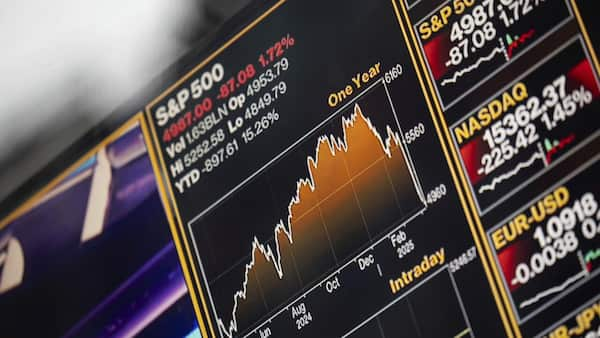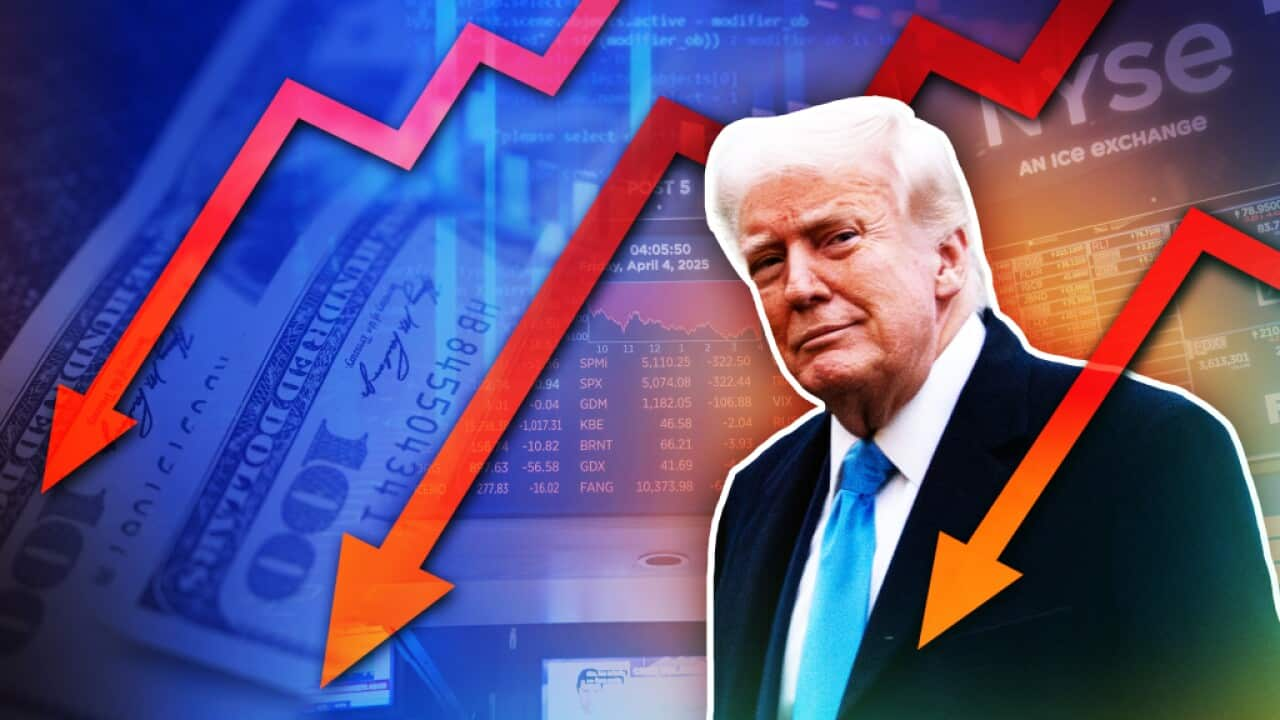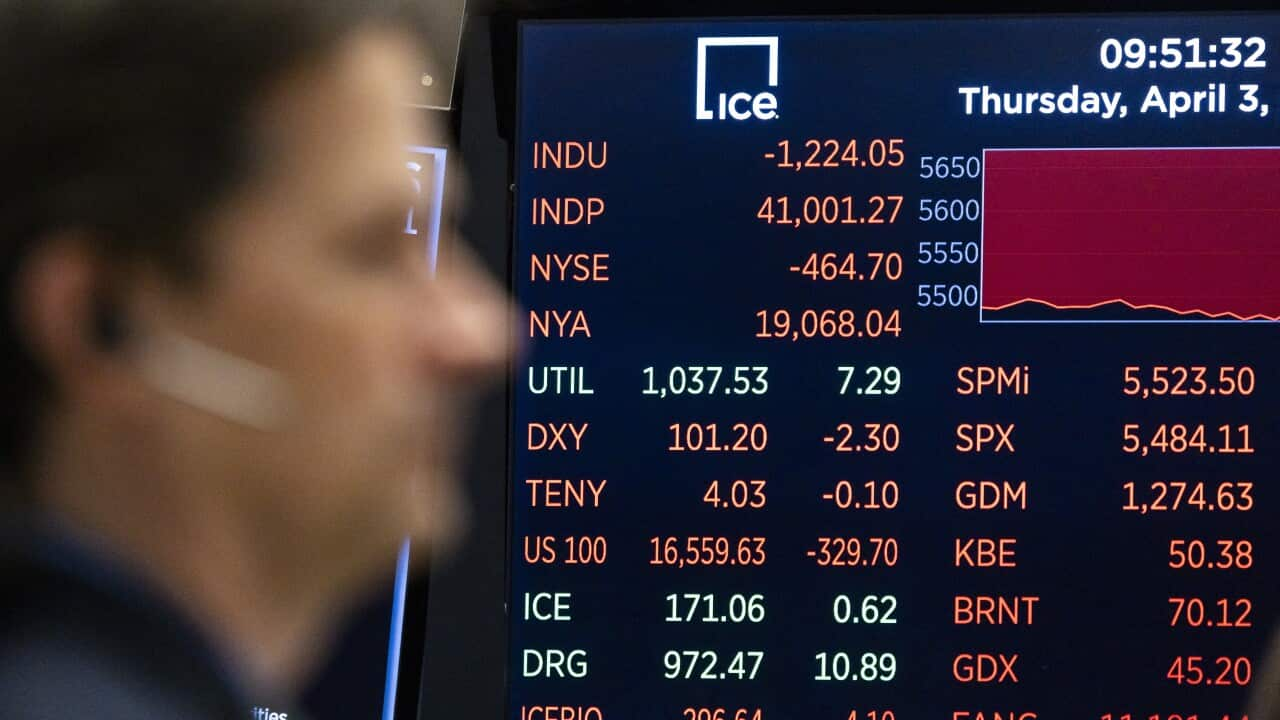As stock markets across the globe continue to tumble amid Donald Trump's sweeping tariffs, concerns about a recession in Australia have reignited.
This week, share markets around the world experienced their Major indexes on New York's Wall Street dropped about 10 per cent, and the tech-focused Nasdaq is down 20 per cent from its recent high. Markets in Europe and Asia have also fallen.
In Australia, the main S&P/ASX 200 index fell another 4.2 per cent on Monday after falls last week, dropping to its lowest point since December 2023, before rallying on Tuesday afternoon.
During a press conference in Sydney on Tuesday, Opposition leader Peter Dutton warned Australians that a recession was "coming for our economy" under the Labor government.
"The government hasn’t prepared our economy. Labor has made decisions in subsequent budgets now which make it harder for the economy to function with international headwinds," he said.
But Prime Minister Anthony Albanese said Australia was better placed than other countries to deal with the economic fallout.
"There are global headwinds that we are seeing. We have to deal with that," he said on Tuesday morning.
"We're not immune from impacts of the global economy, but what we have shown consistently is a preparedness to act for the times, to provide support that is needed for people."
Both leaders were asked if they could guarantee a recession would not happen under their watch, but neither ruled out the possibility.
But while a falling share market may be worrying everyday Australians, experts say we shouldn't panic about what lies ahead. Here's why.
Should Australians be worried about a recession?
With markets swinging, talk of a recession is gaining momentum. But should everyday Australians be worried?
"Initially, they should be concerned but not alarmed," said Dr Luke Hartigan, lecturer at the University of Sydney and a former Reserve Bank economist.
"The direct effect of the tariffs on Australia is going to be relatively small. The US is only one of our smaller trading partners."
LISTEN TO

Fears of recession as US tariffs bite
SBS News
06:51
The bigger risk, he explained, is how Australia's major trade partners — especially China — respond to newly imposed tariffs by the US.
"If those economies go into recession, that could have an impact on us via our trade linkages, specifically iron ore."
Technically, a recession is defined as two consecutive quarters of negative GDP.
But Hartigan says that doesn't always tell the full story, especially here in Australia. He says that because trade is such a large part of our economy, there can be domestic weakness that doesn't show up in GDP. Instead, he says the labour market is a better signal.
"The labour market is still very tight in Australia. We've got a four in front of our labour unemployment rate — that's very low." According to the Australian Bureau of Statistics, Australia's unemployment rate in February was 4.1 per cent.
AMP chief economist Shane Oliver also does not expect Australia to enter a recession but predicts a slower pick-up in growth than forecast by Treasury.
"That obviously does run the risk that we could end up with higher unemployment here, back to the 4.5 per cent rate for unemployment," he told Australian Associated Press.

Stock markets around the globe have plummeted in reaction to Donald Trump's sweeping tariffs. Source: SBS News
What about the stock market crash?
Australians may be worried after the plummets in the stock market this week, which wiped billions from portfolios and super balances. But Hartigan urges perspective.
"The stock market isn’t the economy — it’s a barometer of where investors think the economy is heading. And it’s not always accurate," he said.
"There's an old saying from one famous economist, Paul Samuelson, who said the stock market picked nine of the last six recessions in the US.
"It tends to overreact. Sometimes it's right, but many times it's not. And it could be the case that it's overreacting a little bit now."
Australia uniquely positioned to tackle economic uncertainty
Hartigan says there are a few tools Australia has under its belt that can help ward off a recession, should the worst happen.
The first is in our dollar.
"We have a very unique feature of our economy," Hartigan said. "The Australian dollar is very flexible and it's likely to collapse — and that will provide a very good cushion to the Australian economy."
He says the falling dollar acts as a "shock absorber".
"It supports our incomes, makes our exports relatively more competitive … the 10 per cent tariff that has been imposed on our exports is basically nothing because our dollar has dropped nearly 10 per cent."
The second is in the Reserve Bank.
"The RBA can reduce interest rates. It has the flexibility to do that. Markets are expecting a cut next in May and potentially more cuts during the year ... so that will provide a cushion to consumers and to businesses."
'Concerned, but not alarmed'
When looking at the full picture, Hartigan says Australians should be "concerned, but not alarmed".
"I'm quite comfortable in saying that I think we should be okay. It may be a bit uncertain and we may see a lot more volatility on financial markets, but the real economy — people's incomes — should be okay, at least for now."
"There's been talk of a recession in Australia for a number of years and it hasn't transpired. A recession is very serious, they can happen. But based on how things are now, I don't think that's going to happen."





